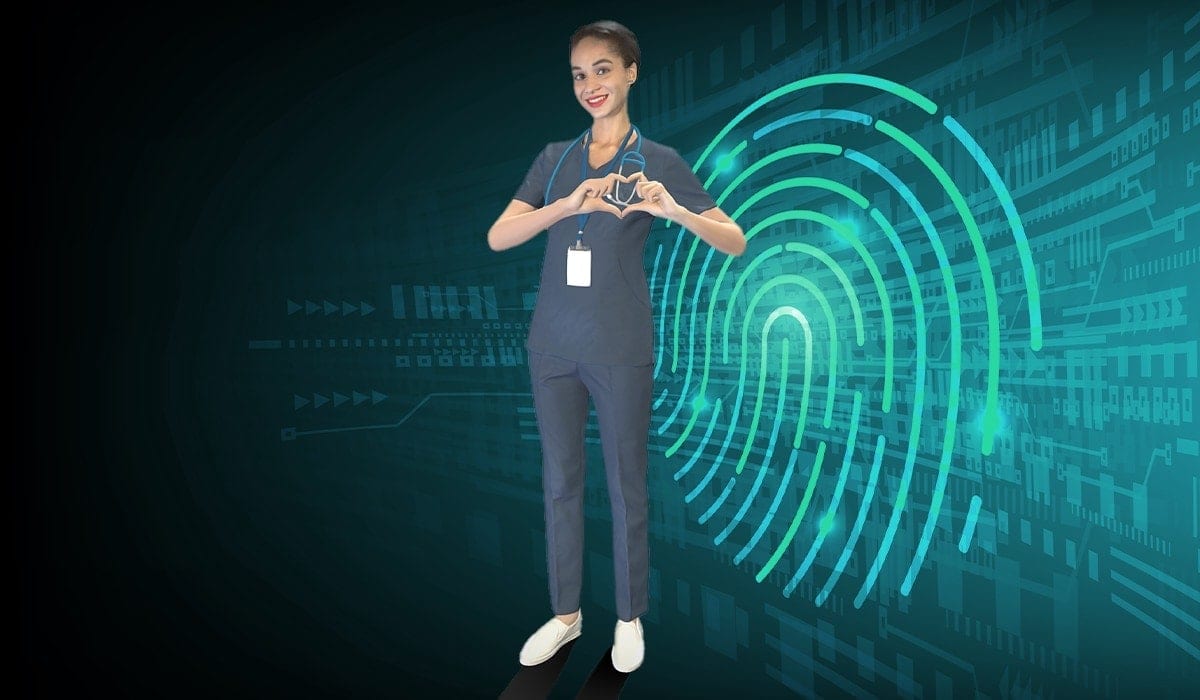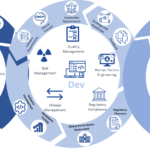Artificial Intelligence (AI) has made significant strides in the field of biometric health monitoring, revolutionizing how individuals and healthcare providers track and manage health data. By leveraging advanced algorithms and machine learning techniques, AI has the potential to transform biometric health monitoring from a reactive process into a proactive and predictive one. This article explores the role of AI in biometric health monitoring, highlighting its impact on continuous health tracking, personalized health insights, early disease detection, and data management.
Continuous Health Tracking
One of the most impactful applications of AI in biometric health monitoring is the ability to provide continuous and real-time tracking of various health metrics. Traditional health monitoring often relies on periodic assessments, which can miss important fluctuations in health status between visits. AI-powered biometric devices, such as wearable fitness trackers and smartwatches, offer a solution by continuously collecting and analyzing data on vital signs, physical activity, sleep patterns, and more.
These AI-driven devices use sensors to gather biometric data, including heart rate, blood pressure, body temperature, and glucose levels. Machine learning algorithms then process this data to provide real-time feedback and insights. For example, an AI-enabled smartwatch can monitor heart rate variability and detect irregularities that may indicate underlying health issues. Continuous tracking allows for more comprehensive health management, as individuals and healthcare providers can monitor trends and changes over time, leading to more informed decisions and timely interventions.
Personalized Health Insights
AI enhances biometric health monitoring by delivering personalized health insights based on individual data. Traditional health monitoring often relies on generalized guidelines that may not account for individual variations in health and lifestyle. AI addresses this limitation by analyzing vast amounts of personal health data to provide tailored recommendations and insights.
Machine learning models can integrate data from various sources, such as wearable devices, electronic health records, and lifestyle information, to create a comprehensive health profile for each individual. AI algorithms can then analyze this data to identify patterns and correlations specific to the individual, offering personalized advice on diet, exercise, and overall wellness. For example, AI can recommend customized workout routines based on an individual’s fitness level and goals or suggest dietary changes to improve metabolic health. Personalized health insights empower individuals to make more informed choices about their health and well-being.
Early Disease Detection
Early detection of diseases is a critical factor in improving health outcomes, and AI plays a significant role in advancing this capability in biometric health monitoring. Traditional diagnostic methods may only detect diseases at advanced stages, when treatment options are limited or less effective. AI-driven biometric devices, however, can identify early warning signs and symptoms by analyzing continuous health data.
For instance, AI algorithms can detect subtle changes in biometric data that may indicate the onset of conditions such as diabetes, cardiovascular disease, or respiratory issues. Machine learning models can analyze trends in heart rate variability, blood glucose levels, or respiratory patterns to predict potential health problems before they become severe. Early disease detection through AI enables timely intervention and preventive measures, improving the chances of successful treatment and reducing the risk of complications.
Enhanced Data Management
Effective data management is crucial in biometric health monitoring, given the vast amount of data generated by wearable devices and health trackers. AI enhances data management by automating data collection, analysis, and interpretation processes. This reduces the manual effort required to manage and make sense of large datasets, allowing for more efficient and accurate health monitoring.
AI-driven platforms can aggregate data from multiple biometric devices and sources, providing a unified view of an individual’s health status. Advanced analytics and visualization tools can present this data in a meaningful way, highlighting key trends and insights. For example, AI can generate comprehensive reports on an individual’s health metrics, such as daily activity levels, sleep quality, and cardiovascular health, making it easier for users and healthcare providers to monitor progress and make informed decisions.
Integration with Healthcare Systems
The integration of AI-driven biometric health monitoring with broader healthcare systems represents a significant advancement in healthcare delivery. By connecting biometric data with electronic health records (EHRs) and other healthcare information systems, AI can facilitate more coordinated and holistic care.
AI algorithms can analyze biometric data in conjunction with medical history, lab results, and treatment plans to provide a more complete picture of an individual’s health. This integration allows healthcare providers to access real-time health data, track changes over time, and make data-driven decisions regarding treatment and management. Additionally, AI can support telemedicine and remote monitoring by providing healthcare providers with continuous access to patient data, enabling virtual consultations and remote care management.
Addressing Privacy and Security Concerns
While AI offers numerous benefits in biometric health monitoring, it also raises important privacy and security concerns. The collection and analysis of sensitive health data necessitate robust measures to protect individual privacy and ensure data security.
AI systems must comply with data protection regulations, such as the Health Insurance Portability and Accountability Act (HIPAA) in the United States or the General Data Protection Regulation (GDPR) in Europe, to safeguard personal health information. Additionally, AI developers and healthcare providers must implement strong encryption, access controls, and data anonymization techniques to protect against unauthorized access and data breaches.
Future Prospects and Innovations
The future of AI in biometric health monitoring holds exciting prospects for further innovation and advancement. Emerging technologies, such as advanced sensors, more sophisticated machine learning models, and improved data integration techniques, promise to enhance the capabilities of biometric health monitoring.
As AI technology continues to evolve, it is expected to offer even more precise and actionable health insights. Innovations in wearable technology, such as smart clothing and advanced biosensors, will provide more comprehensive and accurate biometric data. Additionally, the integration of AI with other emerging technologies, such as blockchain for secure data management, will contribute to more robust and trustworthy health monitoring solutions.
Conclusion
AI is playing a transformative role in biometric health monitoring, offering significant improvements in continuous health tracking, personalized insights, early disease detection, and data management. By leveraging advanced algorithms and machine learning techniques, AI enhances the ability to monitor health in real time, provides tailored recommendations, and facilitates more informed decision-making. As AI technology continues to advance, its impact on biometric health monitoring will likely grow, driving further innovations and contributing to a more proactive and personalized approach to health management.Top of Form
Bottom of Form




